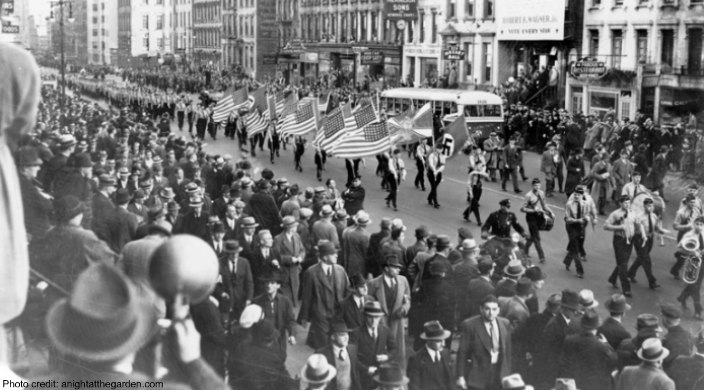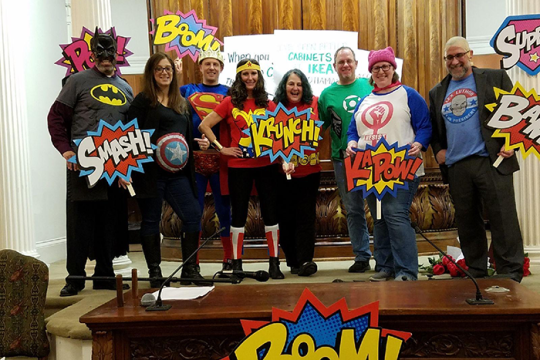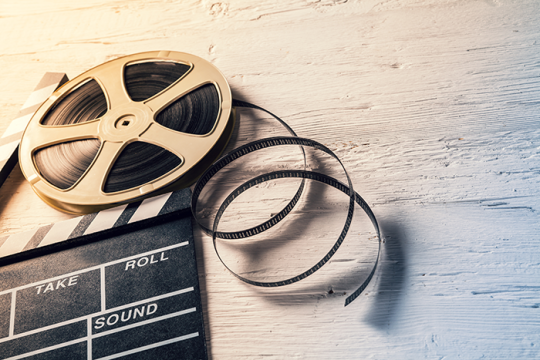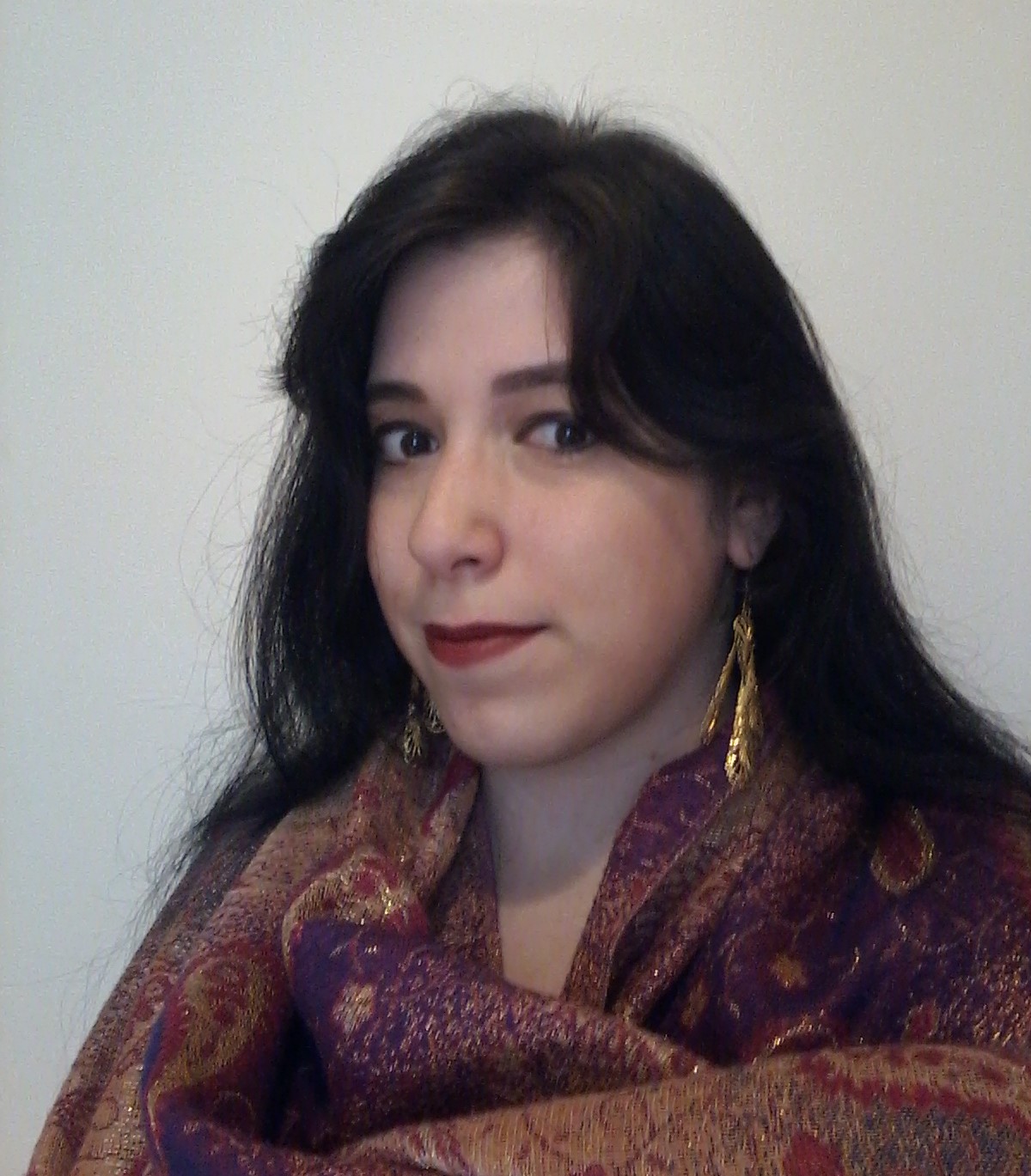
The Oscar-nominated short film A Night at the Garden is a 2018 documentary about a massive pro-Nazi rally that happened in Madison Square Garden 80 years ago this week, on February 20, 1939.
At the time, Adolf Hitler was constructing his sixth concentration camp and would soon instigate war with Poland, kicking off WWII and beginning the Holocaust. At Madison Square Garden, these 20,000 Americans gathered publicly to celebrate Nazi racism, anti-Semitism, and the forthcoming genocide.
In so many ways, the country has forgotten that this happened – and that it could happen again.
This rally – and others just like it, if not quite as large – was sponsored by the German-American Bund, an explicitly pro-Hitler and pro-Nazi organization, with an estimated 10,000 to 100,000 members spread across 93 local chapters throughout the United States. Their strongholds included the East Coast cities of New York City and Newark, N.J. – not coincidentally, also the locations of flourishing immigrant, Jewish communities. The Bund held rallies, organized events, ran newspapers, and even had its own paramilitary wing, called the Ordnungsdienst, or Uniformed Service. It opened 22 Hitler Youth camps. (The largest, on Long Island, was called Camp Siegfried.) They even received Nazi funding for its activities.
These American Nazis were met with resistance. A Night at the Garden shows a Jewish man named Isadore Greenbaum, a plumber from Brooklyn, rushing the stage, shouting “Down with Hitler!” and attacking the Bund’s leader, Fritz Kuhn, who once referred to George Washington as “America’s First Fascist.”
Desperate to stop these Nazis, New York State Judge Nathan Perlman reached out to the city’s Jewish mobsters, specifically Meyer Lansky, promising him both cash and free legal support if he took on the Nazis – so long as he didn’t actually kill anyone. All too eager to take on the anti-Semites, Lansky purportedly responded, “Keep your money” – and then he and his gangsters got to work disrupting Bund meetings and beating the fascists to within an inch of their lives. Later, Bugsy Siegal and Meyer Lansky would train others in beating up Nazis, too.
Recalling the time they break up a rally in Yorkville, Manhattan, Lansky and 14 of his fellow gangsters burst into the buildings and went to work:
“There were only about 15 of us, but we went into action … We wanted to teach them a lesson…[We] threw some of them out the windows…Most of the Nazis panicked and ran out. We chased them and beat them up…We wanted to show them that Jews would not always sit back and accept insults.”
During America’s involvement in WWII, Meyer Lansky and his best friend, Italian Catholic mobster Charles “Lucky” Luciano, clandestinely aided the U.S. government to help the Navy foil Nazi sabotage.
Today, the Jewish mob is no more, and neither is the German-American Bund – but as we’ve seen in recent years, American neo-Nazism and white supremacism are still present. It’s time to ask ourselves: How do we intend to stop them?
Related Posts

Extraordinary Ordinary Heroes

Women of Valor: Revisiting Biblical Role Models


